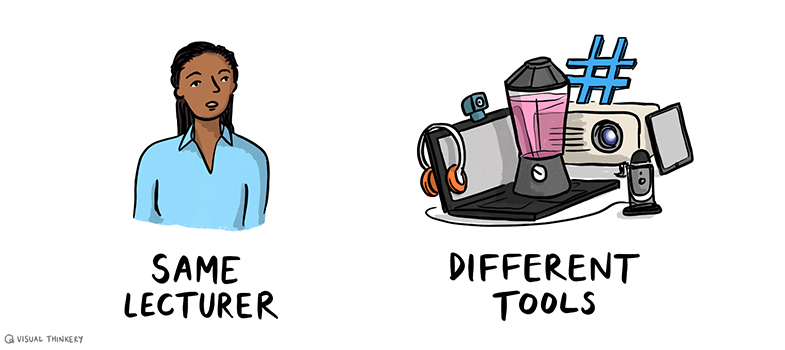My OpenLearn Create Profile
- Personalise your OpenLearn profile
- Save Your favourite content
- Get recognition for your learning
Already Registered?

Skills for Prosperity: Online Education
If you create an account, you can set up a personal learning profile on the site.
Bennett, S., Maton, K. and Kervin, L. (2008) ‘The “digital natives” debate: A critical review of the evidence’, British Journal of Educational Technology, vol. 39, no. 5, pp. 775–86.
Ferguson, R. (2019) Pedagogical Innovations for Technology-Enabled Learning, The Commonwealth of Learning, Burnaby, BC, Canada [Online]. Available at http://oro.open.ac.uk/ 62492/ (Accessed 14 June 2021).
Mor, Y. and Craft, B. (2012) ‘Learning design: reflections upon the current landscape’, Research in Learning Technology, vol. 20 [Online]. Available at http://www.researchinlearningtechnology.net/ index.php/ rlt/ article/ view/ 19196 (Accessed 23 June 2021).
Prensky, M. (2001) ‘Digital Natives, Digital Immigrants Part 1’, On the Horizon, vol. 9, no. 5, pp. 1–6.
Weller, M. (2011) The Digital Scholar: How Technology Is Transforming Scholarly Practice, London, Bloomsbury Academic [Online]. Available at https://www.bloomsburycollections.com/book/the-digital-scholar-how-technology-is-transforming-scholarly-practice/ (Accessed 23 June 2021).
White, D. and Le Cornu, A. (2011) ‘Visitors and Residents: A new typology for online engagement’, First Monday, vol. 16, no. 9 [Online]. Available at http://firstmonday.org/ ojs/ index.php/ fm/ article/ view/ 3171/ 3049 (Accessed 23 June 2021).
Zimmerman, B. J. and Moylan, A. R. (2009) ‘Self-regulation: where metacognition and motivation intersect’ in Hacker, D. J., Dunlosky, J. and Graesser, A. C. (eds.), Handbook of Metacognition in Education, Routledge, pp. 299–315.
For further information, take a look at our frequently asked questions which may give you the support you need.
If you have any concerns about anything on this site please get in contact with us here.





